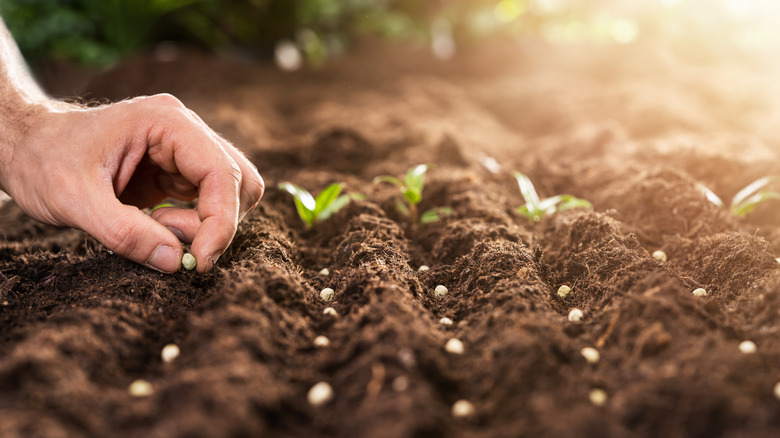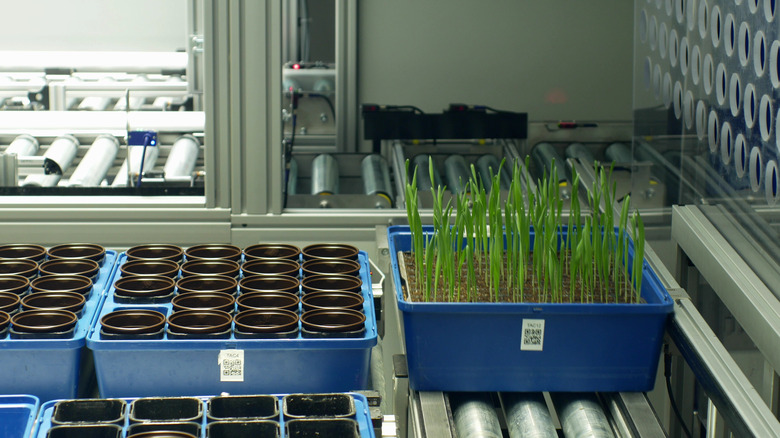Food Scientists Take The Fiction Out Of This Dark Growing Method
What comes to mind when you hear the phrase "climate change?" Greenhouse gasses, rising sea levels, droughts, or melting polar ice? While we can see the impacts of climate change everywhere, we probably don't pay much attention to its influence on agriculture. For instance, climate change is majorly affecting global wheat supplies. But let's face it, food scarcity is as real as it gets, and we don't seem fussed about it because we're not at the receiving end. It might seem like a harsh assessment, but this is the reality we have to acknowledge.
We worry about deforestation, burning fossil fuels, and extreme weather events, but we don't care about the food we throw away despite the severe climate change impacts on agriculture and how it could affect the U.S. food supply. Here's some food for thought for you. A report by Natural Resources Defense Council says that up to 40% of all the food produced in the United States never gets eaten. To put it into perspective, Americans throw away an astonishing $165 billion worth of food yearly (per CNBC).
On the other hand, the worldwide demand for food continues to grow, and it is expected to double by 2050 (anywhere between 59% to 98%). So how are scientists tackling food insecurity? Well, one of the recent developments could play a pivotal role in meeting the world's growing food demand.
Using artificial intelligence to grow food in the dark
Photosynthesis plays an essential role in our very existence by using sunlight, water, and carbon dioxide to make the food we eat and release oxygen as a byproduct. While climate change is affecting photosynthesis and consequently causing fewer crop yields, there is another problem ... an engineering problem that has surprisingly nothing to do with human intervention. Scientists have found that plants have low efficiency (as low as 1%) when it comes to converting sunlight and carbon dioxide into food. Hence, researchers at UC Riverside and the University of Delaware have found a new process that is 18 times more efficient in growing some foods (via Yahoo! News).
The researchers grew green algae in complete darkness by using artificial intelligence. The two-step electrocatalytic process first converts carbon dioxide, water, and electricity into an "acetate" medium and the plant then consumes this acetate to grow. Interestingly, the process becomes more efficient when combined with solar power panels. "With our approach we sought to identify a new way of producing food that could break through the limits normally imposed by biological photosynthesis," said Robert Jinkerson, an assistant professor of chemical and environmental engineering at the University of California Riverside.
The experiments have demonstrated that this technique could be utilized to grow a wide range of food-producing organisms without sunlight, including mushroom-producing yeast, green algae, and fungal mycelium. Moreover, this development could pave a path to growing food on Earth and perhaps on Mars.

